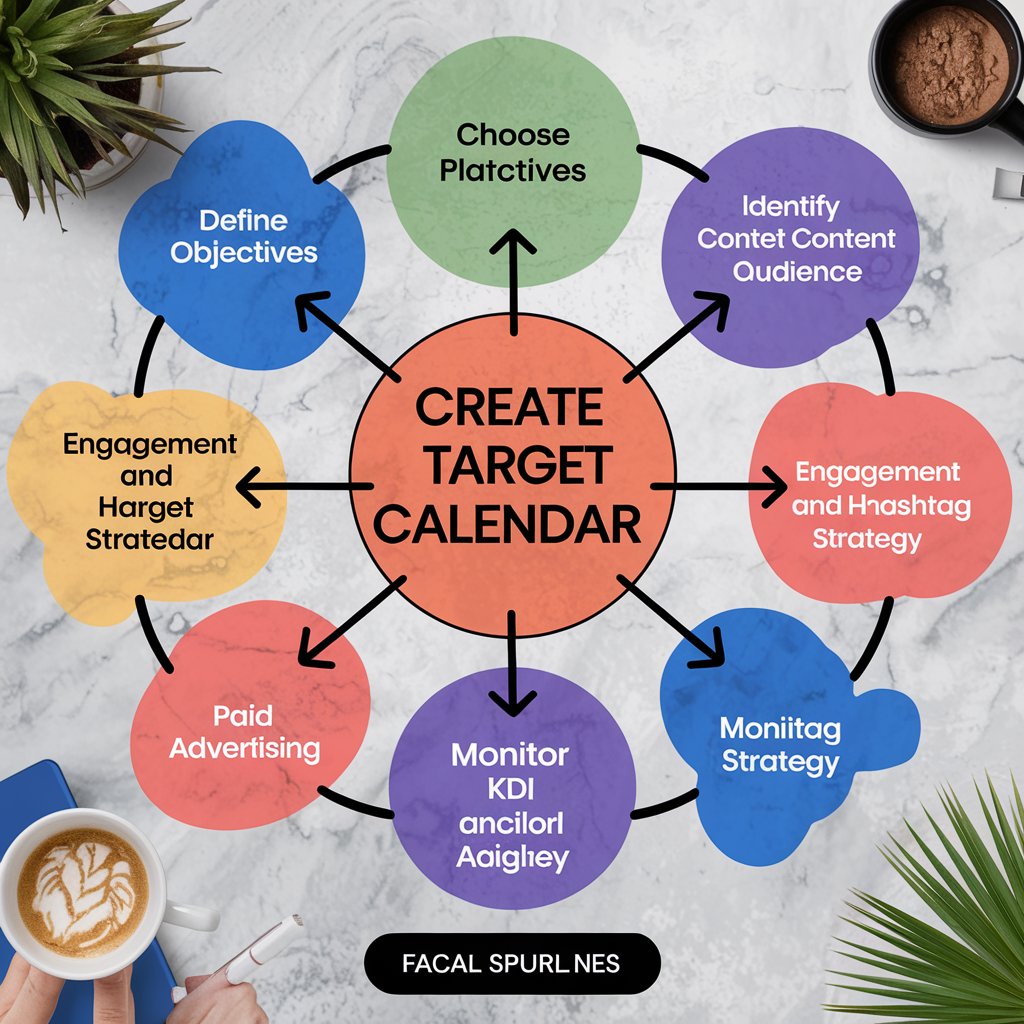In today’s competitive digital landscape, social media marketing has become a crucial component for the success of startups in the UK. With billions of active users on platforms like Facebook, Instagram, LinkedIn, and TikTok, social media offers an unparalleled opportunity to connect with customers, increase brand awareness, and drive sales. This guide is designed to help UK-based startups navigate the world of social media marketing, providing actionable strategies to build a thriving online presence.
Table of Contents
1. Understanding the Importance of Social Media for UK Startups
The UK’s startup scene is booming, with thousands of new businesses launching every year. For startups to stand out, they must leverage social media platforms effectively. Social media is not just about posting updates—it’s a powerful tool to build relationships, engage with your audience, and foster a loyal customer base. The right strategy will help your business:
- Enhance brand visibility
- Drive organic traffic
- Increase customer engagement
- Boost sales conversions
Key Statistics:
- 59 million active social media users in the UK (as of 2023)
- 85% of internet users in the UK engage with brands on social media platforms
- 45% of users have purchased products after seeing them on social media
2. Choosing the Right Social Media Platforms
Each social media platform offers different strengths, and selecting the right one(s) for your startup is crucial. Your choice will depend on your target audience, business goals, and content type. Here’s an overview of the most popular platforms:
2.1 Facebook
With over 44 million users in the UK, Facebook remains one of the largest platforms. It is ideal for B2C startups looking to engage with a broad demographic. Key features include:
- Facebook Ads: Target users based on demographics, interests, and behaviors.
- Facebook Groups: Foster communities around your brand or industry.
2.2 Instagram
Instagram’s visual format is perfect for startups in fashion, food, beauty, and lifestyle sectors. With its strong user base in the 18-34 age group, Instagram provides tools such as:
- Stories and Reels: Share behind-the-scenes content and engage with followers in real-time.
- Shoppable Posts: Sell directly from your Instagram feed, a must-have for eCommerce startups.
2.3 LinkedIn
If your startup is B2B, LinkedIn is invaluable. It offers a professional network for building industry connections and showcasing thought leadership. LinkedIn is particularly effective for:
- Lead Generation: Using LinkedIn Ads and InMail to reach decision-makers.
- Content Marketing: Publish articles and share insights to engage professionals.
2.4 TikTok
TikTok’s rapid growth, especially among Gen Z, presents a unique opportunity for startups to go viral with creative, short-form videos. If your product appeals to younger audiences, consider:
- TikTok Challenges: Engage users through branded challenges.
- Influencer Collaborations: Partner with TikTok influencers to boost brand visibility.
2.5 Twitter (X)
Twitter is ideal for startups looking to engage in real-time conversations. With over 17 million users in the UK, it’s an excellent platform for:
- Customer Service: Provide fast, responsive support.
- Brand Voice: Share news, updates, and interact directly with customers.
3. Developing a Social Media Strategy
A solid social media strategy is essential for UK startups aiming to build a sustainable online presence. Follow these steps to create a winning plan:
3.1 Define Clear Objectives
Start by identifying what you want to achieve with your social media efforts. Common goals include:
- Increasing brand awareness
- Driving website traffic
- Generating leads and sales
- Building a community
Each objective will influence the type of content you create and the metrics you track.
3.2 Know Your Audience
Understanding your target audience is key to creating relevant content. Research the following:
- Demographics: Age, gender, location, and income.
- Psychographics: Interests, hobbies, and values.
- Behavioral Insights: Online habits and purchasing behavior.
3.3 Content Planning and Creation
Consistency is vital in social media marketing. Create a content calendar to organize your posts and ensure you’re providing a mix of content that resonates with your audience. Types of content include:
- Educational posts: Industry tips, how-tos, and tutorials.
- User-Generated Content: Encourage your customers to share their experiences with your brand.
- Behind-the-Scenes Content: Give a personal touch by showing the human side of your business.
3.4 Utilize Hashtags and Keywords
Hashtags can help your content reach a wider audience, while keywords improve your visibility on search engines. Research trending and industry-specific hashtags to include in your posts.
4. Paid Social Media Advertising for UK Startups
Organic reach on social media has become more challenging in recent years. For UK startups looking to scale quickly, paid advertising offers a fast-track to growth. Here’s an overview of the most effective social media ad options:
4.1 Facebook and Instagram Ads
Both platforms use the same advertising system, allowing startups to target specific audiences based on location, age, interests, and more. Popular ad formats include:
- Photo Ads: Showcase products with high-quality images.
- Video Ads: Use engaging video content to capture attention.
- Carousel Ads: Display multiple products or images in a single ad.
4.2 LinkedIn Ads
LinkedIn’s advertising options are ideal for B2B startups. You can target professionals based on their job title, industry, or company size. Types of ads include:
- Sponsored Content: Promote your articles or updates.
- Text Ads: Short, concise ads that appear in the LinkedIn sidebar.
4.3 TikTok Ads
TikTok’s advertising options are perfect for startups aiming to create viral content. Ad formats include:
- In-Feed Ads: Short videos that appear in users’ feeds.
- Branded Hashtag Challenges: Encourage users to create content around your product.
5. Measuring Success: Analytics and KPIs
Monitoring your social media performance is crucial to ensure your strategy is working. Here are the most important metrics to track:
5.1 Engagement Rate
This measures the interaction your posts receive, including likes, comments, and shares. A high engagement rate indicates that your content resonates with your audience.
5.2 Reach and Impressions
These metrics show how many people are seeing your posts. Reach refers to the total number of unique users, while Impressions counts every instance your post is displayed, even if the same user sees it multiple times.
5.3 Click-Through Rate (CTR)
CTR measures the percentage of people who clicked on your post’s link compared to the number of impressions. It’s a critical metric for driving traffic to your website.
5.4 Conversion Rate
This measures how many users took a desired action, such as signing up for a newsletter or making a purchase, after interacting with your social media content.
5.5 Return on Investment (ROI)
Ultimately, your social media efforts should result in positive ROI. This metric helps you understand whether the money you’re spending on ads or content creation is leading to tangible business results.
6. Building a Community Around Your Brand
Social media is more than just a marketing tool—it’s an opportunity to build a community around your startup. A strong community can lead to increased brand loyalty, user-generated content, and word-of-mouth referrals. Strategies to foster community include:
- Creating a Facebook Group: Build a dedicated space where customers can engage with your brand and each other.
- Hosting Live Q&A Sessions: Use Instagram Live, Facebook Live, or LinkedIn to answer customer questions in real-time.
- Running Contests and Giveaways: Encourage participation by offering rewards for sharing or creating content about your brand.
7. Staying Updated on Social Media Trends
Social media is constantly evolving, with new trends, features, and algorithms regularly emerging. UK startups should stay informed about the latest developments to remain competitive. Key trends for 2024 include:
- Rise of Social Commerce: Platforms like Instagram and TikTok are making it easier for users to shop directly from their feeds.
- Short-Form Video: TikTok, Instagram Reels, and YouTube Shorts are dominating social media, with short-form videos proving to be highly engaging.
- AI-Powered Chatbots: More businesses are using AI chatbots on platforms like Facebook Messenger to provide 24/7 customer service.
Diagram: Social Media Marketing Strategy for UK

Conclusion
In a crowded digital marketplace, social media marketing provides UK startups with the opportunity to build meaningful relationships with their audience, increase brand visibility, and drive business growth. By understanding the unique strengths of each platform, developing a strategic content plan, and leveraging paid advertising, your startup can establish a strong online presence and scale effectively.
Frequently Asked Questions (FAQ)
-
Which social media platform is best for UK startups?
The best platform depends on your target audience and business type. Facebook and Instagram are great for B2C startups, while LinkedIn is ideal for B2B companies. TikTok is perfect for brands targeting younger demographics, and Twitter is useful for real-time customer engagement.
-
How often should we post on social media?
Consistency is key, but quality is more important than quantity. A good starting point is posting 3-5 times per week on platforms like Instagram and Facebook, while platforms like Twitter may require daily engagement due to their fast-paced nature.
-
How can we measure the success of our social media marketing?
Success can be measured using metrics like engagement rate, reach, impressions, click-through rate (CTR), conversion rate, and return on investment (ROI). These metrics help gauge how well your content resonates with your audience and whether your social media efforts are driving results.
-
Should UK startups invest in paid social media ads?
Yes, paid advertising can accelerate growth by reaching a larger, targeted audience. Platforms like Facebook, Instagram, LinkedIn, and TikTok offer robust ad options, allowing startups to increase visibility and conversions beyond what organic posts can achieve.
-
What types of content work best on social media?
A mix of content is ideal. Engaging types include educational posts, user-generated content, behind-the-scenes looks, product highlights, and interactive formats like polls and stories. Video content, especially short-form videos, tends to perform very well across platforms.
-
How do we handle negative comments on social media?
Respond promptly and professionally. Acknowledge the issue, offer a solution, and take further discussions offline if necessary. Handling criticism gracefully can strengthen your brand’s reputation and demonstrate commitment to customer satisfaction.




